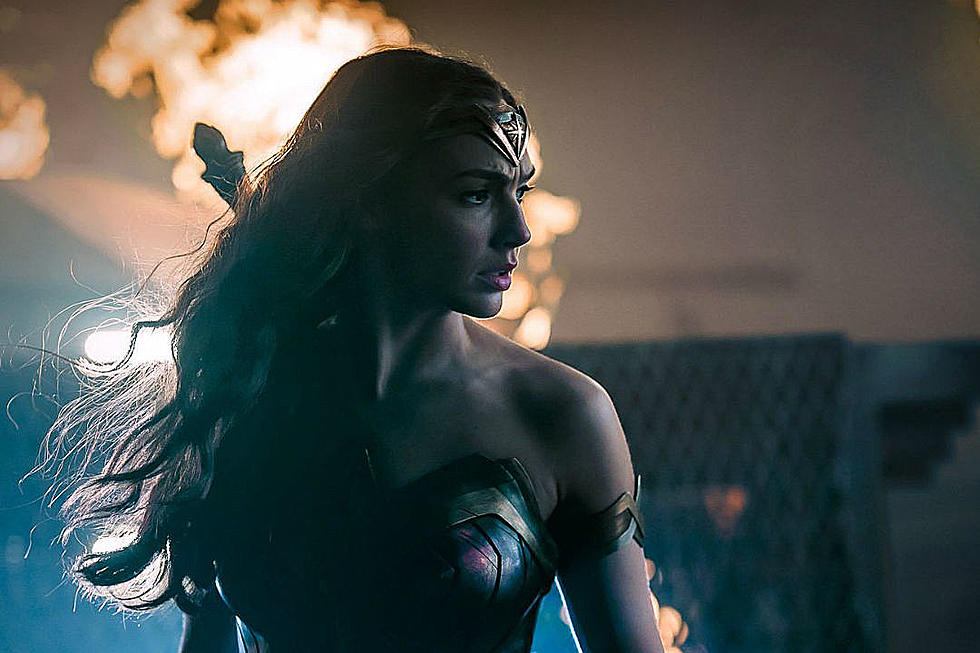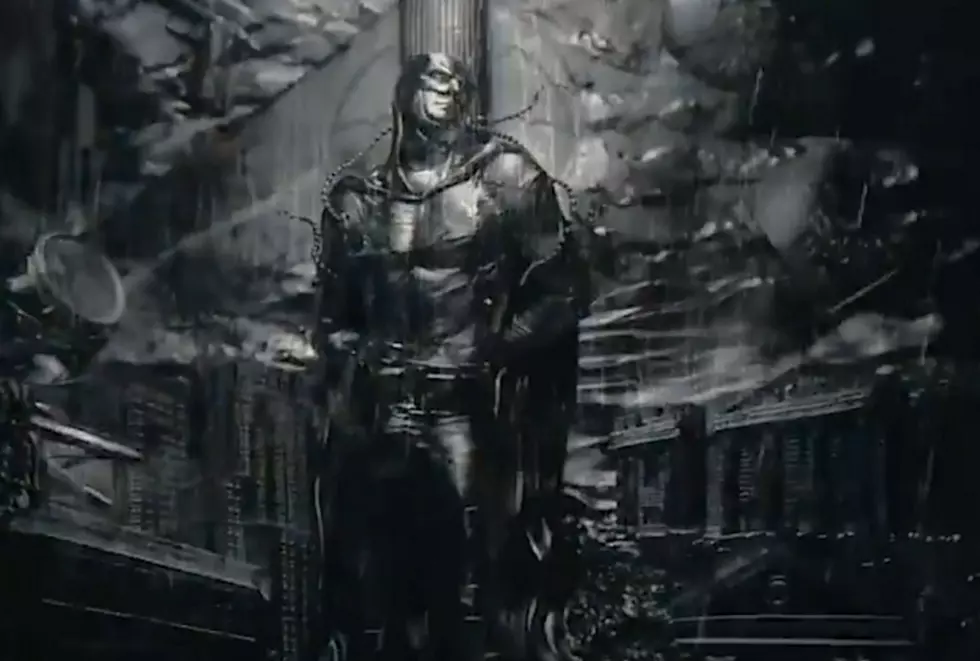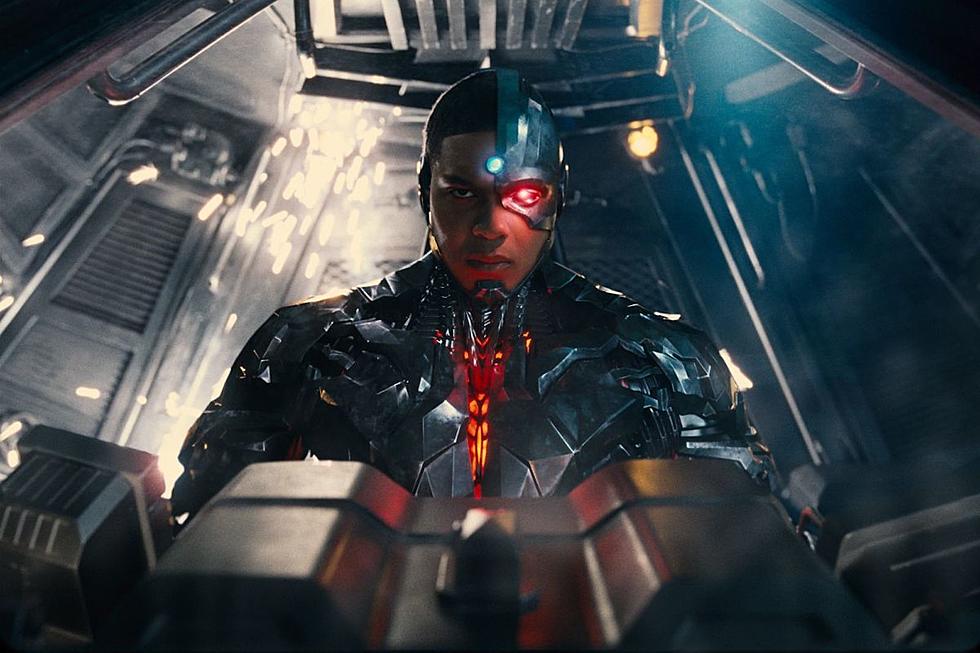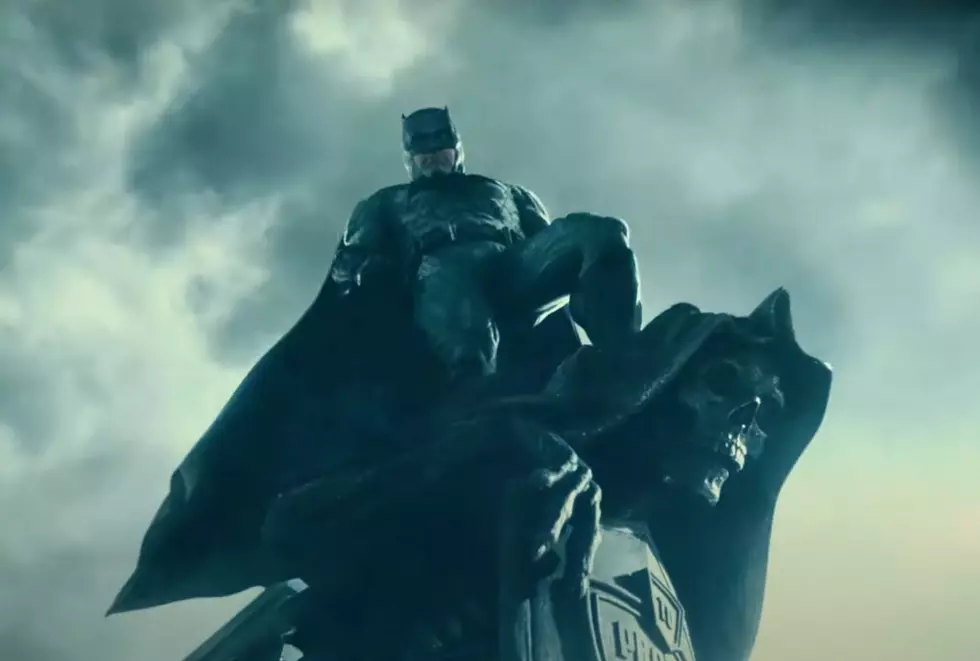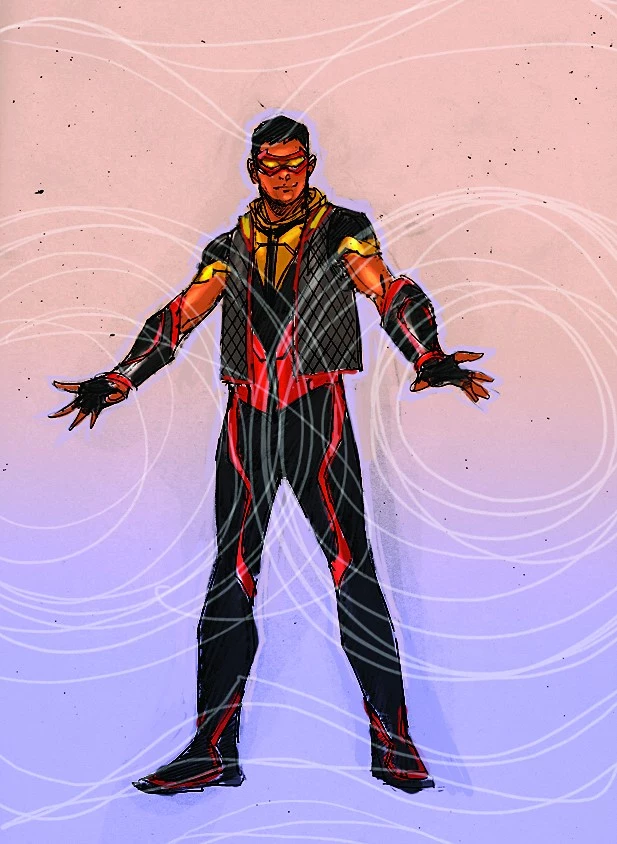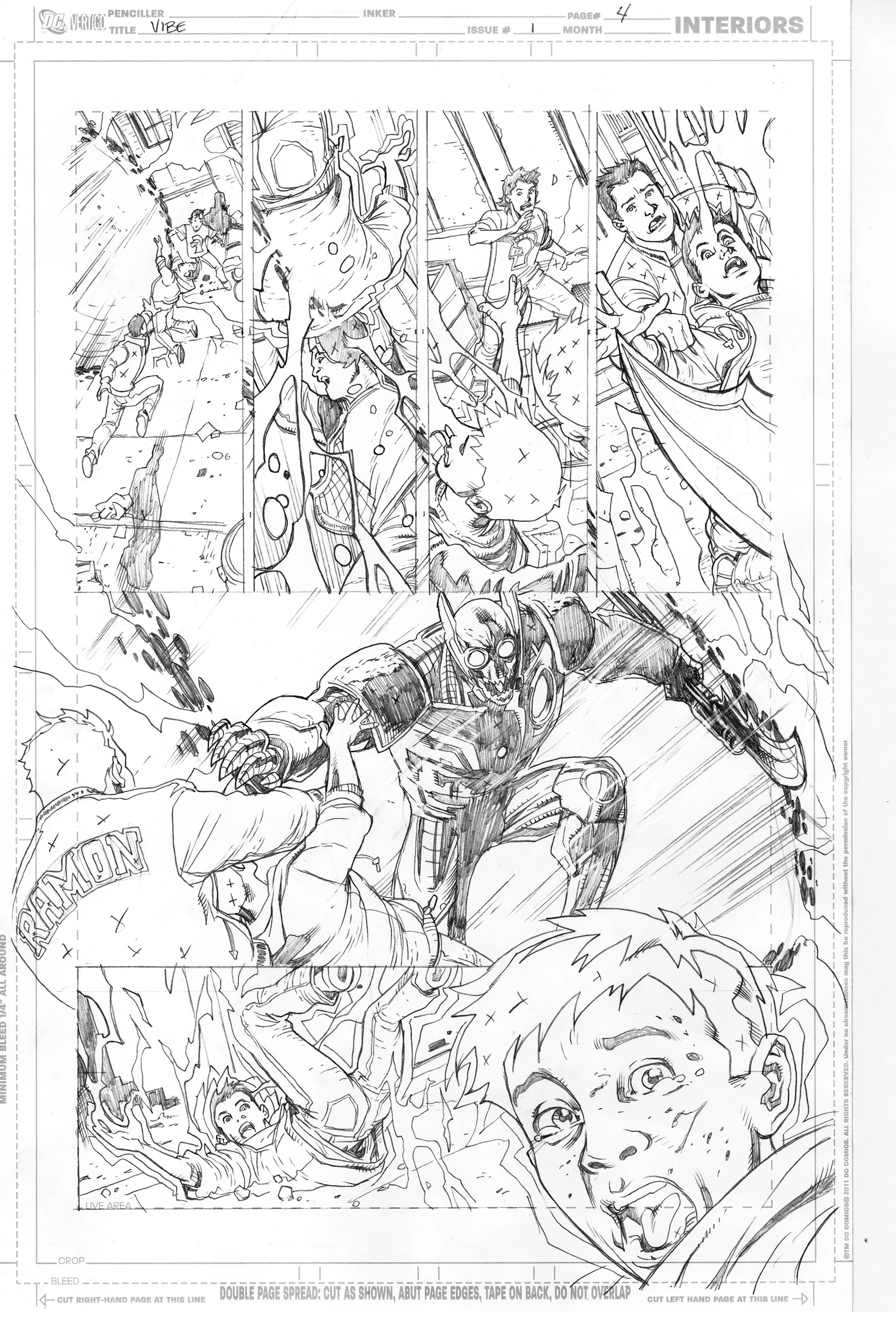![Andrew Kreisberg Talks Boom Tubes in Detroit, Bonding With Geoff Johns and Reinventing Vibe [Interview]](http://townsquare.media/site/622/files/2013/01/vibe-lede.gif?w=980&q=75)
Andrew Kreisberg Talks Boom Tubes in Detroit, Bonding With Geoff Johns and Reinventing Vibe [Interview]

Vibe is a character with a lot of baggage. Seen by many as a racially insensitive product of his time, and others as a bit of a joke, the former Justice League Detroit member has never completely caught on with fans. Despite that, he is still certainly recognizable, and DC Comics' New 52 initiative has afforded the publisher an opportunity to give Vibe a second chance. Writer Geoff Johns has added Vibe to the roster of his new Justice League of America series, and Johns and co-writer Andrew Kreisberg are launching Justice League of America's Vibe, a new monthly series starring the DC Universe veteran, set in his hometown of Detroit, Michigan.
ComicsAlliance spoke to series writer Andrew Kreisberg about reviving and reinventing Vibe, writing a character in the DC Universe who exists in a real city with real problems, and the Justice League Unlimited episode Kreisberg wrote that made fun of him.
ComicsAlliance: For many fans, Vibe has been a troubling character. George Pérez once described him as "the one character who turned me off the JLA." But now this is an opportunity to create a new history for Vibe. So how do you approach writing him from that point of view?
Andrew Kreisberg: I think it was always our intention to reinterpret Vibe from the ground up. He still has the original DNA of the character, but he was born out of his time. I don't know the specifics of it, but it felt a little bit like "Hey, break dancing and Latino culture are big now in the 80s, let's create a superhero based on that!" We really approached it from a completely different point of view which was "What if we took this character nobody thinks very fondly of and turned him into an actual human being?" Obviously we jazzed up his uniform and made him look a lot cooler, but we also really strove to make him a fully acceptable character. The DC universe is filled with a lot of god like characters like Superman and Wonder Woman and Martian Manhunter, and what we really wanted to do with Vibe was create a real person with real problems. He's a real teenager with real problems, and we wanted to have him be almost Peter Parker-esque in that sense, and really have him be a point of entry character for the audience and the fans. In a way, he's a fan of these heroes, and now suddenly he has super powers and is fighting against them, and he's reacting to this change in his life and saying all the things that I think a lot of us would say if we were suddenly thrust into that position, saying "Why are we doing this?" and "Oh my god, I'm going to get killed," and asking a lot of questions. And I think that makes him a whole different Vibe than anyone has ever seen, and I think a whole different character from any we've ever seen in the DC Universe. That's what's really exciting for Geoff and I as writers. On the one hand, we take a character people think they knew and invert him, but at the same time we're introducing this new kind of character into the DC Universe.
CA: Vibe has had, for want of a better term, a kind of cult following in a sense, from his Justice League Detroit days, and did have some popularity. But he's been dead for quite a while, and now in the New 52 he exists again. How do you go about reviving a character who hasn't been around for years?
AK: We're starting from scratch with him. When we first meet him, we're abandoning all of the old continuity and coming up with our own origin story for him and how he gets his powers. He's still Paco Ramone, but this is really the beginning of a new era for him with this reboot. So I'm hoping the people who previously liked him hopefully will cotton to this new version, but you don't have to know the previous history to enjoy him.
CA: Vibe is a character who's never had his own monthly series. When writing a character who's been around for decades but never given his only solo title, what kind of hook do you feel you need to offer to get people to invest in a monthly book?
AK: The first thing is that the book is heavily tied into everything else that's going on in the DC Universe. It's really a companion book to both Justice League and Justice League of America. So if you want the complete story of everything that's going on, you should buy all of the books, because there are a lot of big plans for the DC Universe that go across all the titles. But at the same time, you don't need to be involved in any of those books if you just want to read Vibe. It was important to us for this book to feel like a companion piece and fill in the blanks with the other books, but at the same time feel like a completely stand alone book. And part of that is we've really given Vibe his own franchise. It ties back into the original Justice League book with Darkseid's invasion of earth, which is what brought the Justice League together, beginning in Detroit. It's kind of the Normandy Beach of the invasion by Apokolips, and Vibe actually gets his powers because he's caught in the event horizon of the first boom tube that opens, and his brother is actually killed by the first Parademon that comes through. So he's directly tied into everything that's been going on with the DCU, and now that he has these vibrational powers, the franchise is that he's become this inter-dimensional border cop. The membranes between the dimensions is weakest in Detroit, so this is where everyone from every dimension in the multiverse will come through, and it's Vibe's job to protect our dimension from these illegal incursions. As he says, with some irony, he has a Hispanic background and he's become a border cop.
CA: That's interesting, because my next question was going to be about him being from Detroit. Can you talk a bit about how Vibe being located in Detroit, a city with a lot of history and recent economic trouble, plays a role in the story that you're doing?
AK: When I think about him being from Detroit, I think of a lot of the DC characters, and I love them dearly, but Batman is from Gotham City, Superman is from Metropolis, the Flash is from Central City: they're fictitious cities. And having Vibe be from Detroit really makes him, and I know this term gets thrown around a lot, but it really helps make him a grounded and realistic character. Geoff and I talk a lot about the idea that the city of Detroit itself is kind of a metaphor for Vibe, in that the city, as everyone knows, has taken a lot of economic hits, and it's sort of a city that's constantly taking one on the chin, it seems like. And yet it has this indomitable spirit, and it never gives up, and I think that's part and parcel with Vibe.
CA: If I remember correctly, Geoff is from Michigan, thought I don't think he's from Detroit. Still, that has to help a bit!
AK: Well, I don't have to go on Google a lot to find the names of streets and places for Vibe to be. Geoff tends to know the specific locations! But Geoff is definitely very proud of his home state, and that plays a lot into how we use the city itself. And I think it's just exciting that he's from there, because in DC you're usually either from Metropolis or Gotham, and the real cities that are used are typically New York and Los Angeles, so it's sort of nice when writing Vibe, an underdog character, to use Detroit, and underdog city. It just feels right.
CA: How did this comic come about originally? Why Vibe, as opposed to other characters?
AK: It's funny, I think Geoff had so much success with Booster Gold, in taking a character who had been around in the past, but who had never necessarily gotten his due, which I'm so glad for because I'm now writing the Booster Gold pilot! [Laughs]. But I think it's kind of a similar thing. It's very hard to create a brand new character, but I also think there's something thrilling and challenging about taking a character that in some ways people don't necessarily think very much of and turning him into someone people can root for. Geoff is already sort of at the top of the mountain, and, you know, what was going to be next? This was probably the biggest challenge he could set for himself, and I'm so happy to have been brought on board to help him do it. You know, the first time I remember actually talking about it with him was on the set of the pilot of Arrow. We were up in Vancouver when he started telling me about this, and it was funny to me because I had written an episode of Justice League Unlimited in which I actually made fun of Vibe.
CA: You beat me to that! That was going to be my last question.
AK: That's one of the things Geoff and I bonded over when we met, because it happened right around when he was pitching his Booster Gold series.
CA: And that JLU episode focused on Booster Gold.
AK: Right, and I had written that episode because Booster had been my favorite back in the day. And when I was writing the script I was thinking "What hero would make Booster feel really bad about himself if he got the praise and Booster didn't?" And all my comic book friends said "Use Vibe! Nobody likes him!" So I feel like in some ways when Geoff said "How would you feel about doing a Vibe book?" it was my karmic destiny. I owe Vibe because I took such a public shot at him. Now it's my destiny to make him a character that people care about!
CA: I love how in that episode, Vibe doesn't even get a speaking role. You just get Martian Manhunter saying "...Vibe."
AK: It was very funny then, but it's less funny now that I'm trying to say to everybody "No, Vibe is really good!" [Laughs] But really, I'm just in love with the character. It's like if teen me had somehow gotten super powers and got thrust into these situations. I think that's the kind of character we've never really seen in the DC Universe, and I think that's really exciting. Especially given the monumental hurdles that the JLA are going to be facing over the next few months, and to throw in such an "ordinary" character who's been given extraordinary responsibilities I just think is really exciting.
More From ComicsAlliance
